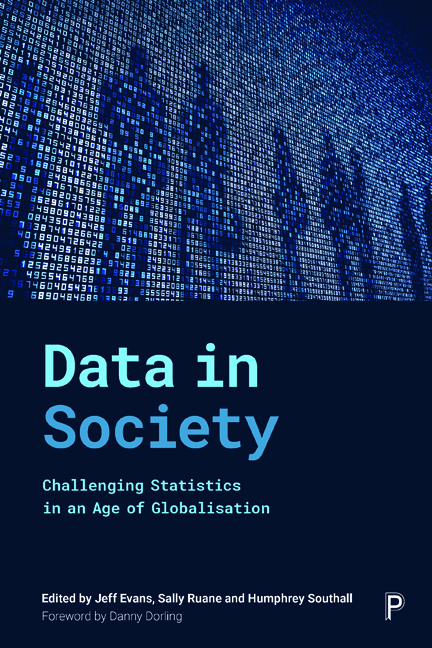Book contents
- Frontmatter
- Contents
- List of figures, tables and boxes
- Notes on contributors
- Foreword
- Preface
- General introduction
- Part I How data are changing
- Part II Counting in a globalised world
- Part III Statistics and the changing role of the state
- Part IV Economic life
- Part V Inequalities in health and wellbeing
- Part VI Advancing social progress through critical statistical literacy
- Epilogue: progressive ways ahead
- Index
17 - The difficulty of building comprehensive tax avoidance data
Published online by Cambridge University Press: 30 April 2022
- Frontmatter
- Contents
- List of figures, tables and boxes
- Notes on contributors
- Foreword
- Preface
- General introduction
- Part I How data are changing
- Part II Counting in a globalised world
- Part III Statistics and the changing role of the state
- Part IV Economic life
- Part V Inequalities in health and wellbeing
- Part VI Advancing social progress through critical statistical literacy
- Epilogue: progressive ways ahead
- Index
Summary
Introduction
Tax avoidance has become a prominent feature of contemporary media coverage. It shows that complex corporate structures and transactions are used at home and abroad to enable corporations and wealthy elites to avoid taxes. In this process they are aided and ‘protected by a highlypaid, industrious bevy of professional enablers in the private banking, legal, accounting, and investment industries’ (Henry, 2012 p 9). The loss of tax revenues poses a direct challenge to the possibilities of constructing a decent society that ought to provide education, healthcare, a clean environment, pensions, security, the judiciary and a variety of social rights to enable everyone to live a fulfilling life.
Due to the secrecy and confidentiality attached to individual and corporate tax affairs, the amounts of tax revenues lost due to unlawful practices (often called tax evasion), competing interpretations of law (some call it tax avoidance) and a variety of other factors are hard to estimate, but competing models provide a glimpse. For example, the 2016/17 annual report published by Her Majesty's Revenue and Customs (HMRC), the UK's tax authority, estimates that around £36 billion of tax revenues a year remain uncollected due to avoidance, evasion and other factors. Others have estimated the UK tax revenue losses to be between £58.6 billion and £122 billion a year (Raczkowski, 2015). Despite their methodological differences, these are, at best, ball-park figures. This chapter does not examine the methodological debates but instead argues that it is difficult to reveal the full extent of tax revenues lost. It is difficult, if not impossible, to build a comprehensive picture partly because tax-avoiding transactions frequently give the appearance of normal transactions and partly because the limited staffing and financial capacity of HMRC makes thorough investigation and prosecution where necessary impossible in all cases. Some of the transactions are processed through anonymous entities in low/no-tax jurisdictions which provide secrecy and thus make it difficult to track transactions. Even on mainland UK, there are no explicit requirements for company accounts to provide information about tax avoidance strategies. One cannot rely on company auditors to flag incidences of tax avoidance as they are permitted to sell avoidance schemes to their audit clients and are mired in conflicts of interests.
- Type
- Chapter
- Information
- Data in SocietyChallenging Statistics in an Age of Globalisation, pp. 225 - 236Publisher: Bristol University PressPrint publication year: 2019



